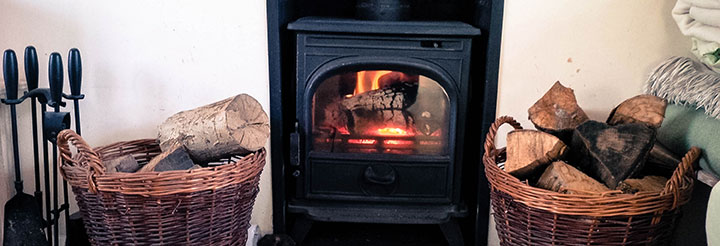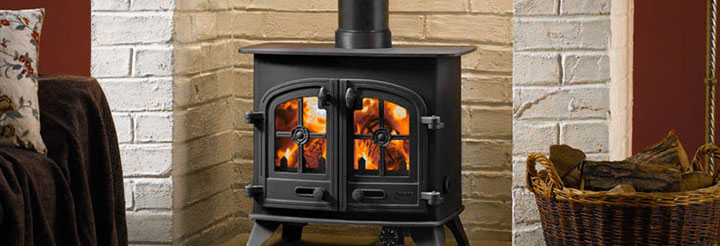Experts In Solid Fuel Heating Installations
Deciding on the perfect stove for you couldn’t be easier with Murray and McGregor, our trained surveyors are experienced in all aspects of solid fuel heating. We consider all aspects of the install from the type of stove to choose, flue design and the regulations that have to be adhered to. That means that you can relax in the knowledge that Murray and McGregor have everything covered for you. Your personal surveyor will also advise you on the output required and explain concepts such as chimney draught, efficiency and warm or cold air-wash to ensure that you understand the choices that are available.
Which type of stove?
Wood burning stove

Wood burning stoves are a completely renewable source of heat, so you can heat yourself without heating the planet. Trees are a fundamental part of our existence and to the wider ecosystems in which we live. Providing us with oxygen to breath, natural flood barriers and a vital habitat for insects and wildlife to thrive in. During the lifetime of a tree it will consume vast amounts of CO2 and release twenty times more oxygen than is consumed during burning. The carbon dioxide that is released on burning wood, is equal to the CO2 that is released naturally from the natural decay of a tree.
We are committed to renewable sources of fuel and encourage all of our customers to become engaged with their local community that produce ethical firewood. Rather than giving endless sums of money to faceless corporations for fossil fuels that are destroying life’s balance. Government organisations such as the Energy Savings Trust and private bodies regulate and give guidance on wood as a fuel source, providing accredited suppliers of biomass.
Contrary to common belief, wood burning stoves can be used in smoke control areas, so speak with your Murray and McGregor surveyor and they will show you a range of Defra approved and ECO Design 2022 stoves.
Your surveyor will discuss your options regarding wood as a fuel source at your FREE initial survey. This will inform you of local sources of wood and different types to burn, discussing things like seasoning wood and moisture content.
Benefits of wood fuel stoves:
- Renewable
- Save 25% on bills
- Warm
- Simple reliability
- No standing orders
- Cheapest fuel
- Heart of the home
Multi-fuel stove

Multi-fuel stoves are designed to burn a range of materials such as wood, coal, anthracite, smokeless fuels and turf or peat briquettes. This means that they are more versatile in occasions where wood fuel is unavailable. The main distinction between log stoves and multi-fuel stoves are their combustion chamber anatomy. A multi-fuel stove will normally have a grate and an ash pan that needs to be cleaned prior to lighting. Whereas a wood burning stove usually has a fixed grate with a flat base, where the ash left from the previous burn becomes a critical part in assisting the combustion process of your next fire.
Despite the subtle differences in design, there tends to be little or no difference between their features such as airwash and cleanburn, leaving no tangible change in output.
Your Murray and McGregor consultant will guide you in this decision process at survey stage.
Benefits of multi-fuel stoves:
- Save 25% on bills
- Warm
- Simple reliability
- No standing orders
- Cheapest fuel
- Heart of the home
Guidance on owning and installing a solid fuel stove can be found at HETAS


